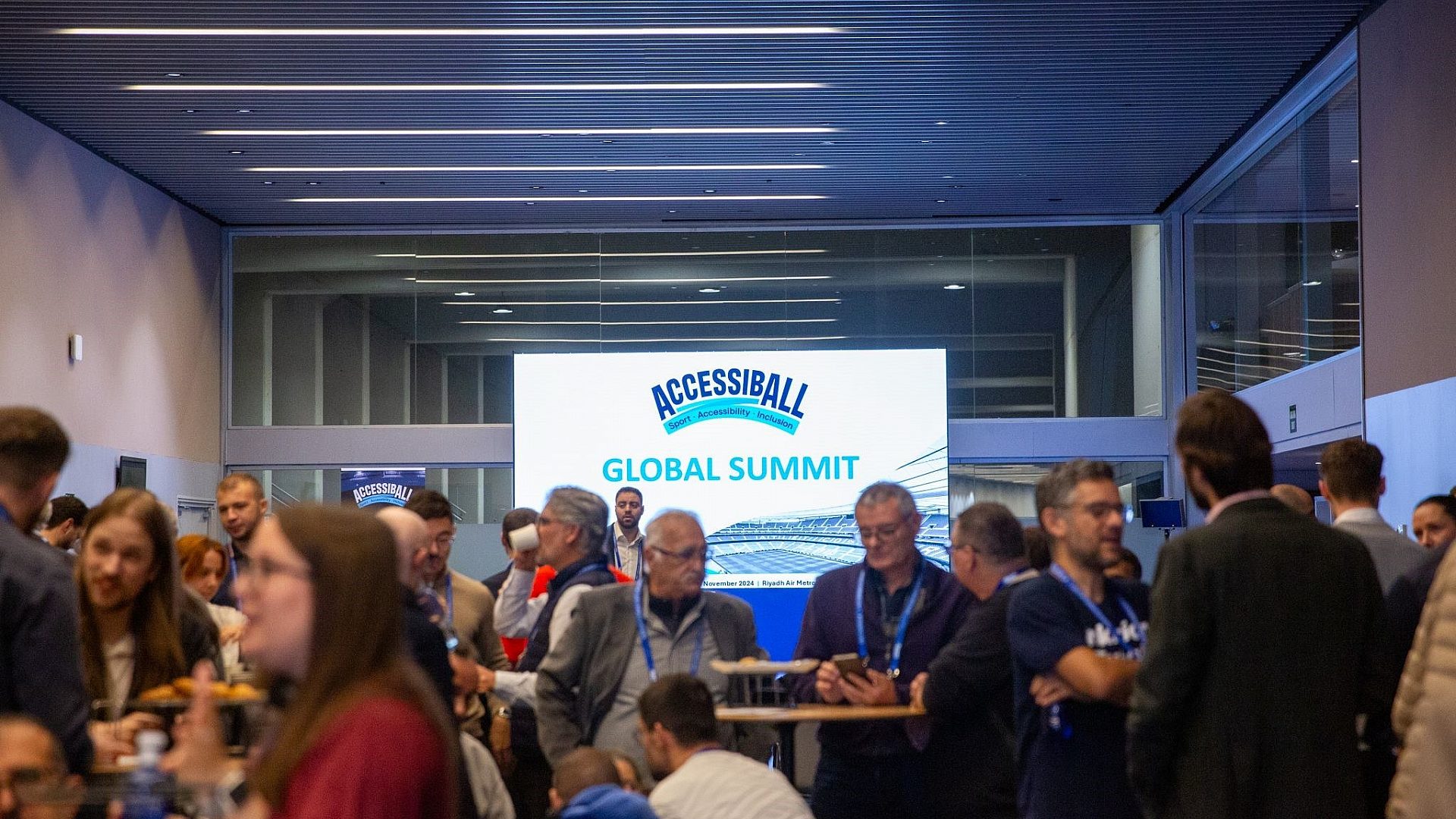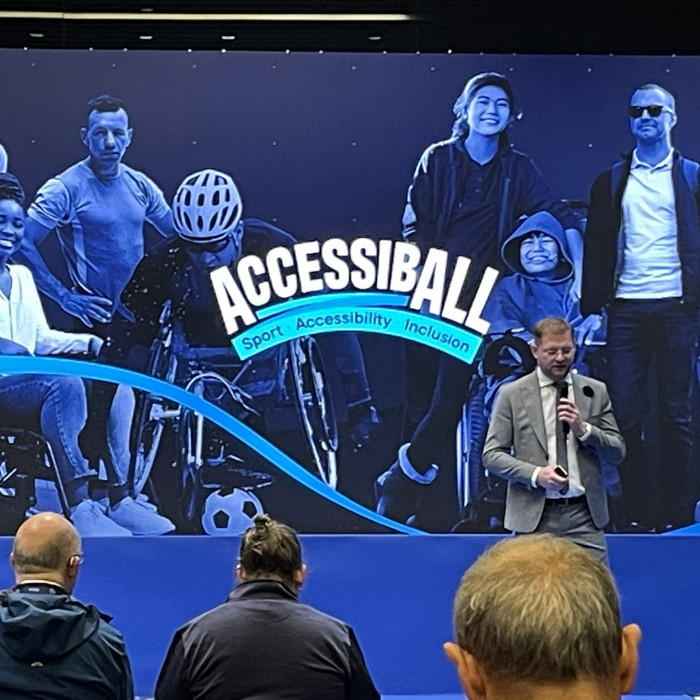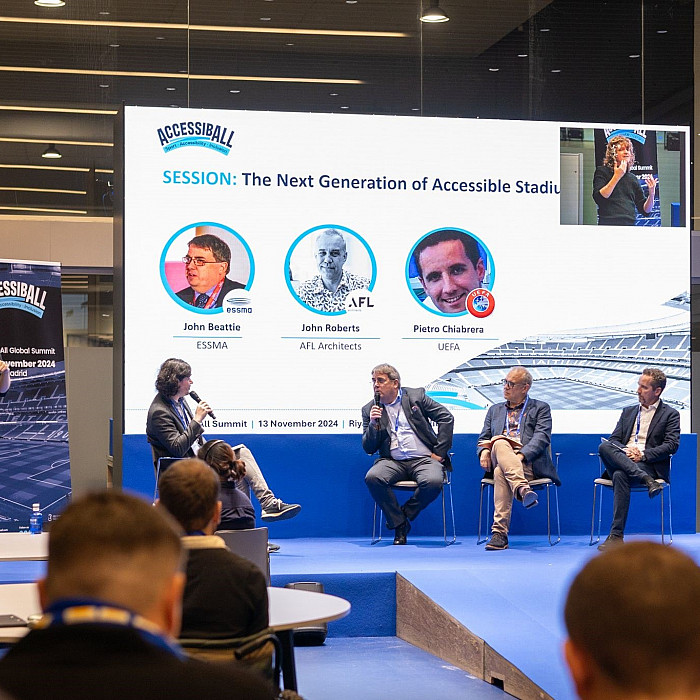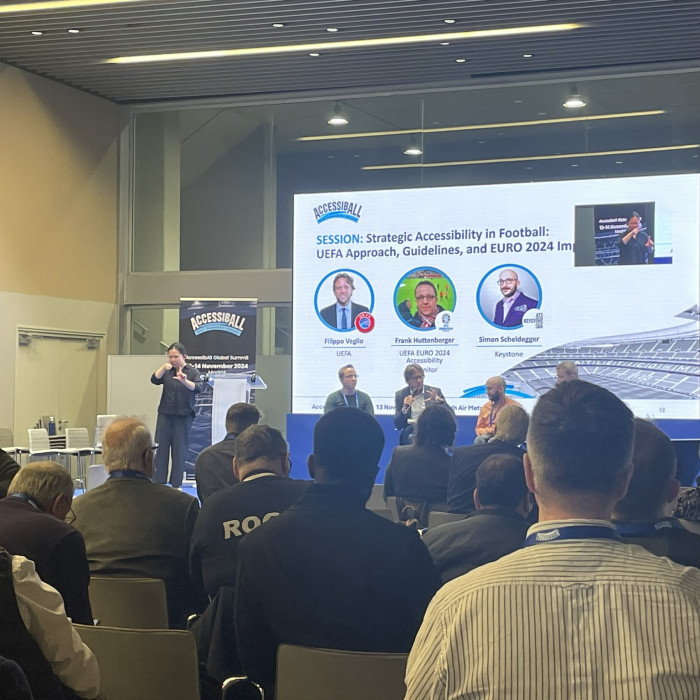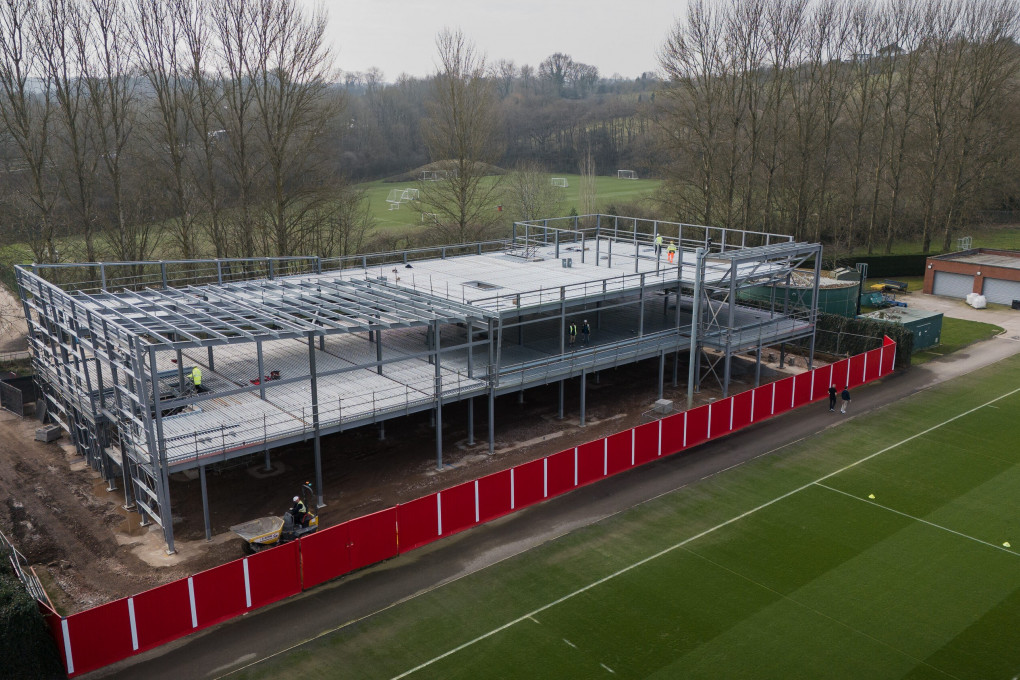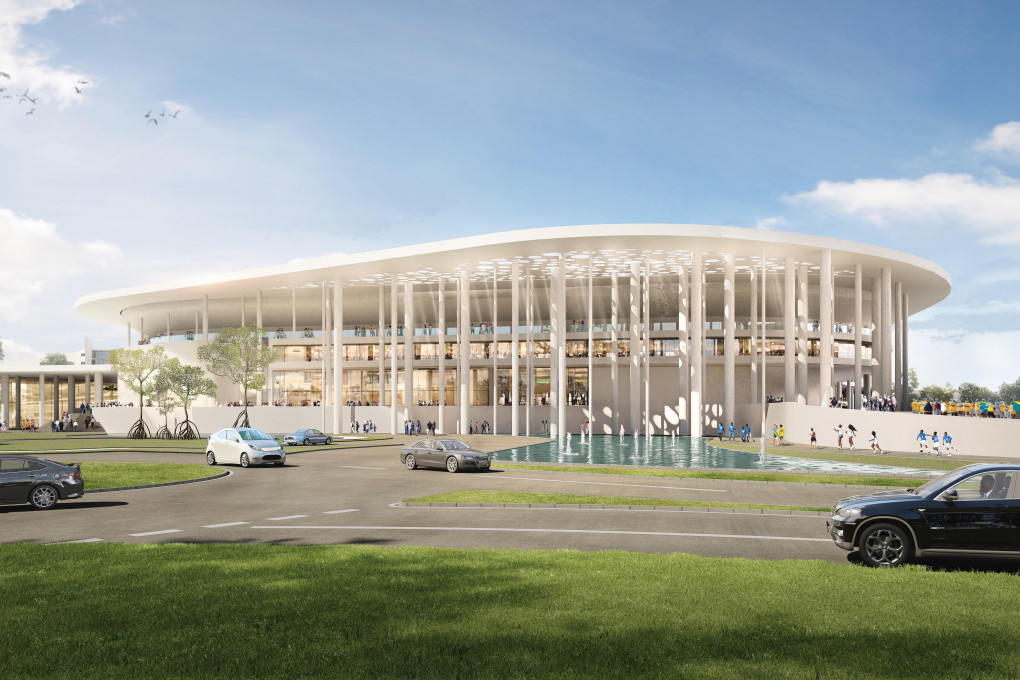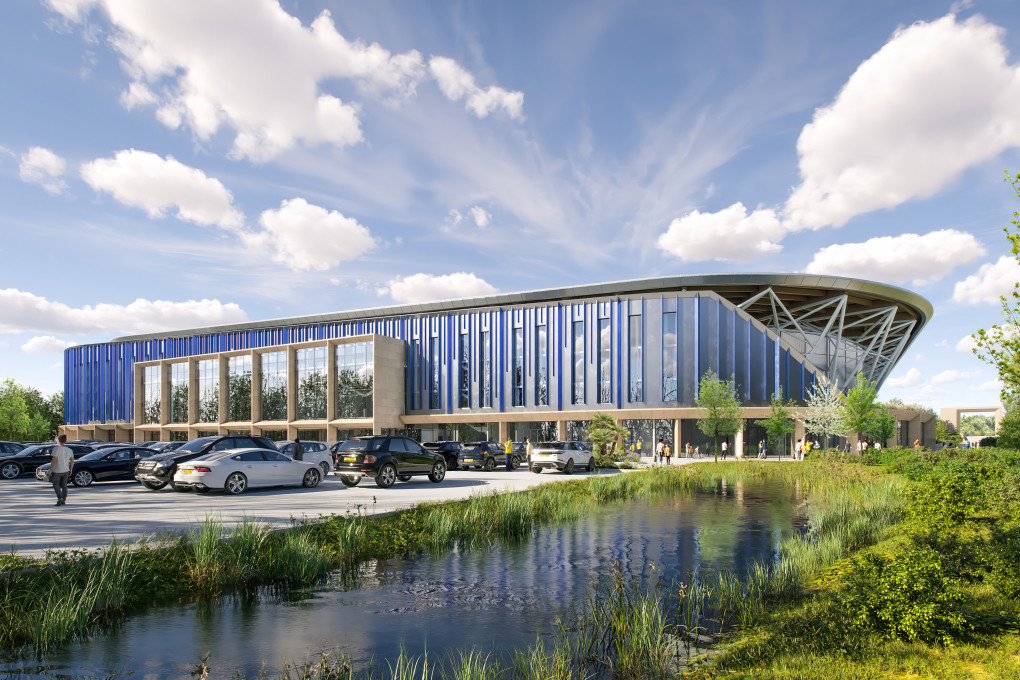John Roberts, Director of the Sports & Leisure sector at AFL Architects and a board member of AccessibAll, was invited to join a distinguished panel at the summit to share his expertise and insights on stadium accessibility. With over 25 years of experience in stadium design, John’s work has consistently championed the cause of inclusive and accessible stadiums, recently demonstrated in projects such as the Gtech Community Stadium and DDA work with Liverpool, Chelsea, and Everton, aligning with the Premier League's commitment to updating stadia to meet current guidelines.
AccessibAll: Leading Accessibility and Inclusion in Live Sport
AccessibAll are at the forefront of making live sport accessible for all, working to ensure that disabled individuals can fully engage as fans, employees, volunteers, and leaders. The organization collaborates with sports bodies around the world—from local leagues to international associations—to break down barriers and create more inclusive environments. With its "total access" approach, AccessibAll focuses on improving all aspects of the matchday experience, including accessible ticketing, audio-descriptive commentary, and the support of Disabled Supporter Associations. By providing evidence-based guidance and promoting sustainable practices, the organization is helping to build a more inclusive sporting landscape where disabled people can actively contribute.
This years AccessibAll Global Summit brought together key stakeholders in the sports and disability sectors, offering a platform to share best practices and discuss critical issues like stadium accessibility, fan inclusivity, and technological innovation. The event served as a platform for advancing accessibility in football and reinforced the commitment to ensuring that disabled voices remain central in shaping the future of sport.
John’s Insights: Shaping the Future of Accessibility
Playing a key role as a panelist in The Next Generation of Accessible Stadiums session, John, alongside experts from UEFA and ESSMA, explored the future of stadium design and evolving accessibility standards. Topics covered included best practices for stadium accessibility, creating inclusive fan experiences, the role of Access Champions, and leveraging innovative technologies to enhance accessibility. The panel also addressed the need to raise standards for accessible clubs, ensuring that all fans can fully engage with the sport.
Building on these discussions, John offers his insights into how sports organizations can drive meaningful change and create truly inclusive experiences for all fans.
Insight 1: Breaking Barriers – How Technology is Transforming Fan Experience
Building on the discussions around evolving accessibility standards, one area that stood out was the role of technology in enhancing fan experiences. Innovations like Feelix and Field of Vision are making live sport more inclusive, especially for fans with vision and hearing impairments. Field of Vision’s handheld device, for instance, uses haptic feedback to let blind and partially sighted fans "feel" the action, creating a more immersive live experience.
These technological strides, as John noted, are breaking down barriers and redefining what it means to be a fan. Live sport provides an unparalleled sense of excitement and connection, and advancements like these are making sure that everyone, regardless of ability, can be part of that shared experience. This progress underscores a powerful message: everyone deserves access to the joy of live sport, and technology is helping make that vision a reality.
Insight 2: Bridging the Gaps – Enhancing Matchday Inclusion
While the summit highlighted the advancements in accessibility across sports venues, the dialogue revealed a persistent gap in providing equal matchday experiences for all fans. A live poll at the summit revealed that many attendees continue to see disparities, particularly in areas like hospitality, press facilities, and media spaces. With only 1% of stadium capacity currently dedicated to wheelchair users, the need for broader accessibility is clear, especially as 24-40% of the population lives with disabilities.
Looking ahead, new regulations will increase wheelchair spaces to at least 5% of total capacity, but cost and structural limitations remain significant challenges. Clubs like Manchester City have set a positive example by taking steps to provide more inclusive experiences, showing that progress is possible. However, the broader conversation reinforced that achieving true equality will require continued innovation and collaboration to ensure every aspect of the stadium experience is accessible to all.
"So, let us leave here inspired and ready to act. Football belongs to everyone, and together, we are making that vision a reality. Thank you for your dedication, your energy, and your shared belief in this mission. For some, this was the first step in our journey together, let’s start a new era!"
Shaping the Future of Inclusive Stadiums
The AccessibAll World Summit provided a crucial opportunity to reflect on the progress made in stadium accessibility, while highlighting the work still needed to ensure equality for all fans. With a strong focus on technology, collaboration, and inclusive design, the future of accessible football stadiums is full of promise. At AFL Architects, we are committed to advancing this important issue, driving forward innovation and design solutions that prioritize inclusivity at every level. By working together and continuously pushing boundaries, we can create environments where live sports are truly a game for everyone.
